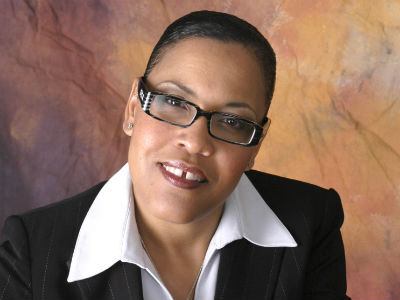Sara Jane Moore, who tried to assassinate President Gerald Ford in 1975, dies at 95
News > National News

Audio By Carbonatix
1:47 PM on Friday, September 26
By TRAVIS LOLLER
NASHVILLE, Tenn. (AP) — Sara Jane Moore, who was imprisoned for more than 30 years after she made an unsuccessful attempt to assassinate President Gerald Ford in 1975, has died. She was 95.
Moore died Wednesday at a nursing home in Franklin, Tennessee, according to Demetria Kalodimos, a longtime acquaintance who said she was informed by the executor of Moore’s estate. Kalodimos is an executive producer at the Nashville Banner newspaper, which was first to report the death.
Moore seemed an unlikely candidate to gain national notoriety as a violent political radical who nearly killed a president. When she shot at Ford in San Francisco, she was a middle-aged woman who had begun dabbling in leftist groups and sometimes served as an FBI informant.
Sentenced to life, Moore was serving her time at the Federal Correctional Institution in Dublin, California, when she was unexpectedly paroled Dec. 31, 2007. Federal officials gave no details on why she was set free.
She lived largely anonymously in an undisclosed location after that, but in broadcast interviews she expressed regret for what she had done. She said she had been caught up in the radical political movements that were common in California in the mid-1970s.
“I had put blinders on, I really had, and I was listening to only ... what I thought I believed,”" she told San Francisco television station KGO in April 2009. “We thought that doing that would actually trigger a new revolution.”
Moore was often confused with Lynette "Squeaky" Fromme, a disciple of cult murderer Charles Manson who aimed a semiautomatic pistol at Ford in Sacramento, California, on Sept. 5, 1975. A Security Service agent grabbed the gun before any shots could be fired, and the president was unharmed.
Just 17 days later, on Sept. 22, Moore shot at Ford as he waved to a crowd outside the St. Francis Hotel in San Francisco's Union Square. Oliver Sipple, a 33-year-old former Marine, knocked the .38-caliber pistol out of her hand as she fired, causing the shot to go astray and hit a building.
“I'm sorry I missed,” Moore said during an interview with the San Jose Mercury News seven years later. “Yes, I'm sorry I missed. I don't like to be a failure.”
But in later interviews, before and after her release, she repeatedly said that she regretted her actions, saying she was convinced that the government had declared war on the left.
Asked by KGO in 2009 what she would say to Ford if that had been possible, she replied that she would tell him, “I'm very sorry that it happened. ... I'm very happy that I did not succeed.” Ford died in 2006, about a year before her release.
Her family did not publicly comment on her death. Geri Spieler, who wrote a biography of Moore titled “Housewife Assassin,” said she had abandoned her children and was estranged from all her living relatives.
Moore was born Sara Jane Kahn on Feb. 15, 1930, in Charleston, West Virginia. Her confusing background, which included multiple failed marriages, name changes and involvement with both leftist political groups and the FBI, baffled the public and even her own defense attorney during her trial.
“I never got a satisfactory answer from her as to why she did it,” retired federal public defender James F. Hewitt once said. “There was just bizarre stuff, and she would never tell anyone anything about her background.”
Ford insisted that the two attempts on his life should not prevent him from having contact with the people, saying, “If we can't have the opportunity of talking with one another, seeing one another, shaking hands with one another, something has gone wrong in our society.”
His other attacker, Fromme, also was freed from prison eventually. She had no comment as she left a federal lockup in Texas in August 2009 at age 60.
It was in 1974 that Moore began working for People in Need, a free food program for poor people established by millionaire Randolph Hearst as ransom after his daughter Patty was kidnapped by the radical Symbionese Liberation Army.
Moore soon became involved with leftists, ex-convicts and other members of San Francisco's counterculture. At this time, she became an FBI informant.
Moore said she shot at Ford because she thought she would be killed once it was disclosed that she was an FBI informant. The agency ended its relationship with her about four months before the shooting.
“I was going to go down anyway,” she said in the 1982 interview with the San Jose Mercury News. “And if I was going to go down, I was going to do it my way. If the government was going to kill me, I was going to make some kind of statement.”
Moore was sent to a West Virginia women's prison in 1977. Two years later she escaped but was captured several hours later.
She was later transferred to a prison in Pleasanton, California, before going to Dublin.
In 2000 she sued the warden of her federal prison to prevent him from taking keys given to inmates to lock themselves in as a security measure.
In an interview after the July 2024 assassination attempt on President Donald Trump, Moore told the Nashville Banner that part of what motivated her was that Ford, who became president after Richard Nixon resigned, was not elected president.
“He wasn’t elected to anything. He was appointed,” Moore said. “It wasn’t a belief, it was a fact. It was a fact that he was appointed.”









